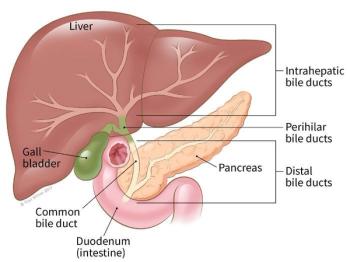
Technology
Latest News
Latest Videos

CME Content
More News

A machine learning model was able to predict visual outcomes and showed that the time from diagnosis to first treatment indicates visual improvement in patients with macular edema due to central retinal vein occlusion (CRVO).

Although technology is allowing for earlier detection of eye conditions, lack of reimbursement and insurance coverage remain major barriers to widespread use, explained speakers at the American Society of Retina Specialists 40th Annual Scientific Meeting.

The retina space is evolving due to new technology that is changing the way specialists deliver care, whether that means offering the ability to do new procedures in the office or providing more virtual or hybrid care.

Participants in a digital acute musculoskeletal (MSK) program experienced better pain and function outcomes vs nonparticipants, demonstrating benefits for acute and subacute MSK conditions.

Social determinants of health present many health-related challenges for Medicare Advantage (MA) plan members, something these plans are looking to overcome by diversifying their service offerings.

Knowing that insulin requirements vary widely among persons who have type 1 diabetes, 3-month effectiveness of the Omnipod 5 Automated Insulin Delivery System was evaluated across 6 daily insulin doses.

Digital health care has been a key initiative at Texas Oncology, because it ensure patients can receive better care at their home, explained Debra Patt, MD, PhD, MBA, executive vice president of Texas Oncology.

Extended safety and effectiveness of the Omnipod 5 AID system were investigated in this 12-month extension of a previous 3-month study conducted among persons living with type 1 diabetes (T1D).

Patients with substance abuse disorder (SUD) saw a significant reduction in hospital encounters and per-patient costs after the initiation of a prescription digital therapeutic.

A review of more than 200 neurology-focused apps found opportunities to improve language offerings and hybrid use with clinicians.

Investigators from the Pediatric Diabetes Center at Hassenfeld Children’s Hospital at NYU Langone investigated outcomes disparities as they related to diabetes technology use among youth living with type 1 diabetes (T1D).

Debra Patt, MD, PhD, MBA, executive vice president of Texas Oncology, discusses how enhancements to telemedicine precipitated by the COVID-19 pandemic have made lasting and meaningful changes to oncology care, including that these care improvements will persist post pandemic.

Data from menstrual tracking apps may be used against people in certain states if Roe v Wade is overturned; 100 million Americans, including 41% of adults, have health care debt; Express Scripts reported results of its program to lower diabetes-related costs.

After completing 6 modules in a digital therapeutic for insomnia, most users met criteria for meaningful treatment response and 40% met criteria for remission.

A wearable device powered by artificial intelligence and the Internet of Things to create a "digital twin" reduced glycated hemoglobin and improved remission rates for patients with type 2 diabetes (T2D) through personalized care.

During a session at the 2022 European Hematology Association Congress, speakers discussed how artificial intelligence (AI) can help advance the principles of ethical medicine—but also how new technologies are being used to undermine the integrity of scientific research.

Designing rational spending targets and having small sample sizes are 2 main challenges payers and partners face in the shift toward alternative payment models (APMs), said Ravi B. Parikh, MD, MPP, assistant professor of medical ethics and health policy, assistant professor of medicine, University of Pennsylvania.

Hepatobiliary-phase enhanced imaging outperformed diffusion-weighted imaging in distinguishing intrahepatic mass-forming cholangiocarcinoma, but the accuracy is greater when these methods are used in tandem.

Findings presented at the 82nd Scientific Sessions of the American Diabetes Association support the safety and efficacy of open-source automated insulin delivery (AID) systems among children and adults living with type 1 diabetes (T1D).

The authors call for the collection and use of data on virtual health care to shape an informed and thoughtful approach to telehealth payment that equitably serves all stakeholders.

Sacubitril/valsartan reduced mean pulmonary artery pressure (mPAP) and improved lung congestion, functional capacity, and quality of life in a subset of patients with heart failure with preserved ejection fraction and pulmonary hypertension (HFpEF-PH) using a remote monitoring platform.

Miruna Sasu, PhD, MBA, president and CEO of COTA Healthcare, discusses 3 ways in which the FDA can provide, and has provided, assistance on the capture of real-word data (RWD) in electronic medical records.

The authors of this study evaluated outcomes among children aged 7 to 16 years, all living with type 1 diabetes (T1D), who attended a 3-day virtual education camp that focused on their use of a closed-loop control (CLC) system for insulin delivery.

As artificial intelligence (AI) technology in the gastrointestinal field continues to advance, speakers at Digestive Disease Week 2022 discussed how these tools can be put into practice to improve efficiency, reduce physician burnout, and reap cost savings.

Miruna Sasu, PhD, MBA, president and CEO of COTA Healthcare, discusses the medicines discovery process and how real-world data can be used to evaluate patient and tumor response to treatment regimens.




















